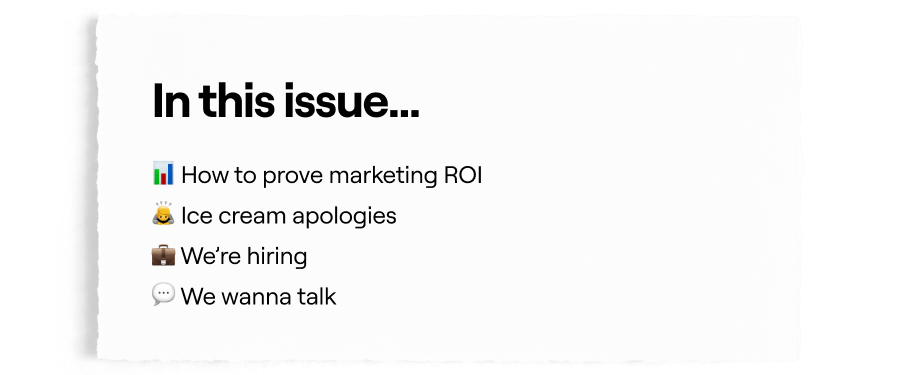- The Standard
- Posts
- ✍️ your marketing budget survival guide
✍️ your marketing budget survival guide
Your marketing budget shouldn't be guesswork. Here's how to build one that actually works.

Quick note: Today is your last chance to fill out our AI Marketing in 2026 survey. We’re not mad you haven’t filled it out yet. We just got our co-founder Alex to do it yesterday.
And now, math.
Welcome back to another day in Marketing 101, where the gold star goes to whoever can figure out the perfect-budget formula.
It’s not AP Calc, so don’t get scared. All we’re saying is that it might just be time to break down where all your leads are really coming from.
That means it’s time for the dreaded *shudder* math.
We’re not exactly up on our calculus, but our CEO Abby’s going to take over today as teacher-in-residence. She’ll show you how you can build a budget that tracks down where the heat is, which means you can double down there.
It’s her guide to getting an A+.
And unlike her “splitting” burrata at a company meal (read: scooping the entire 4-person serving onto her plate), the numbers here actually check out.


You're staring at a blank budget template.
Leadership wants to know: What's the plan? What's it going to cost? How will you prove it works?
Those are really big questions for a small team to answer—plus, it’s not always clear which of your strategies had the biggest impact when you tried so many new things.
You can create a budget without getting into guesswork.
It’s all about math-driven marketing:
Start with your revenue target for the year, assuming the average deal size. That’ll show you how many customers you need.
Take that customer number, and apply your usual win rate. That tells you how many demos you need.
Take your demo number and, assuming the conversion rate of site visitors to demos, you can figure out how many site visitors you need.
That’s just the start of the process. Get the full framework for building your marketing budget here.

Campaigns that got us talking: Back in September, Notion announced 3.0. In November, they reminded us with an impact-focused article and a new post on LinkedIn showing behind-the-scenes footage of their team first prototyping their agentic AI with GPT-4 in 2022. This is a great example of breathing new life into your story through fresh content, one of our favorite ways to multiply reach.
AI spotlight: Money’s getting tight—Tech giants companies that are all-in on AI might not have sufficient cash flow to keep paying for all their investment projects like data centers, tools, and more.
Stuff that made us scroll back up: Google has new email mandates—here’s a look into what they really mean.

This month, in honor of our very-fun, you’re-missing-out-if-you-skip-it AI survey, we're asking an important question:
To preface it, let's say you're a marketer at a company selling software that helps prevent employee turnover.
Which do you like better?
A) Get machine learning-powered predictive analytics
B) Know that Susan from accounting wants to quit before she does
We want to hear all your "how to market AI" thoughts (and you can share them right here).

Do you like taking charge?

There are certain things you see on Slack, a Google Doc, or LinkedIn that make you pause (maybe make a kind-of scoff/snort) because they’re just, well, an ick.
This week, we’re icked by:
People who say they’re "prompt engineering" when all they did was type "make this sound smart" into ChatGPT
LinkedIn posts that overuse and abuse the “enter” key (you are not William Carlos Williams)
Two spaces after a period—typewriters have been over for a while

A little math never hurt anyone. When you can reverse-engineer the path to closing deals, you’re going to be confident building out your next budget. Instead of “whatever works,” you have real goals that everyone can tackle together, and a No. 2-level precision for making Honor Roll.
See y’all next time.
— the storyarb writers’ room 🫡

Oh! And another thing… Did you know writing is basically a workout? Researcher Martin Lotze studied writers and athletes, and found that, when writers write and athletes play, their brain activity follows similar patterns. What’s our takeaway? We’re starting a kickball league ASAP.



Reply